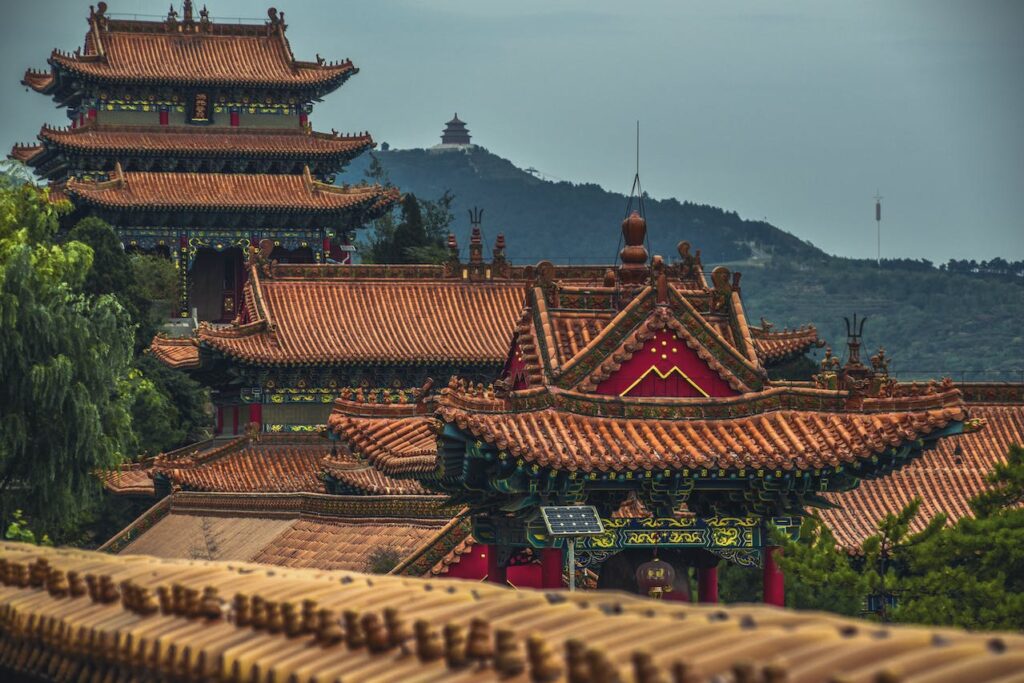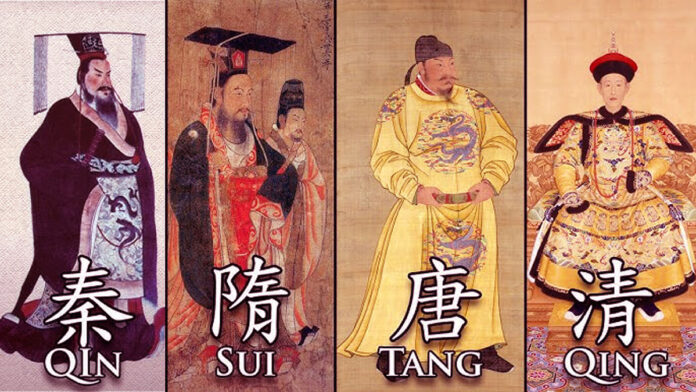China, a land steeped in rich history, stands as a testament to the enduring legacy of its imperial dynasties. Spanning thousands of years, these dynasties shaped the cultural, political, and economic landscape of the Middle Kingdom. Join me on a captivating journey through the annals of time as we unravel the epic tale of Chinese dynasties and their imperial glory.
Page Contents
Introduction: The Cradle of Civilization
China, often hailed as one of the world’s oldest continuous civilizations, boasts a fascinating history that can be traced back over four millennia. The story begins with the Xia Dynasty, the legendary dynasty considered by many historians as the cradle of Chinese civilization. Though the existence of Xia remains a subject of debate, it sets the stage for the dynastic saga that follows.
Read also : The Indus Valley Civilization: Forgotten Wonders
The Shang Dynasty: Oracle Bones and Bronze Splendour
The Shang Dynasty emerges as the first historically verified ruling house, reigning from the 16th to the 11th century BCE. This period witnesses remarkable advancements, including the use of oracle bones for divination and the mastery of bronze casting. The Shang Dynasty laid the foundation for the feudal system, a hierarchical structure that would endure through successive dynasties.

The Zhou Dynasty: Mandate of Heaven and Philosophical Flourishing
Enter the Zhou Dynasty, which marks a pivotal point in Chinese history. The concept of the “Mandate of Heaven” becomes a guiding principle, asserting that rulers derive their authority from divine approval. This era also witnesses the flourishing of philosophical thought with luminaries like Confucius and Laozi shaping the intellectual landscape.
The Qin Dynasty: Unification Under the Iron Fist
The ruthless rise of the Qin Dynasty under Emperor Qin Shi Huang represents a turning point. Known for unifying China and constructing the Great Wall, Qin’s reign is characterized by authoritarian rule and the implementation of standardization measures, including a uniform system of writing and currency.
The Han Dynasty: Golden Age of Chinese Imperialism
Following the short-lived Qin Dynasty, the Han Dynasty emerges as a golden age. Lasting for over four centuries, it witnesses the Silk Road flourishing, the invention of paper, and the establishment of the civil service examination system. Han rulers preside over a vast and prosperous empire, leaving an indelible mark on Chinese history.
The Three Kingdoms to the Sui and Tang: Turmoil and Cultural Renaissance
The collapse of the Han Dynasty leads to the era of the Three Kingdoms, characterized by political fragmentation and military conflict. However, this turbulent period also gives rise to remarkable literary works, such as the epic “Romance of the Three Kingdoms.” The subsequent Sui and Tang dynasties usher in a cultural renaissance, with advancements in art, poetry, and technology.
The Song Dynasty: Innovation and Technological Marvels
The Song Dynasty marks an era of unparalleled innovation, witnessing the invention of gunpowder, printing technology, and the compass. Despite its cultural and technological achievements, the Song Dynasty faces external threats, eventually succumbing to the Mongol invasions led by Genghis Khan and his successors.
The Yuan Dynasty: Mongol Rule and Cultural Synthesis
Under Kublai Khan, the grandson of Genghis Khan, the Yuan Dynasty unites China under Mongol rule. This period witnesses a fascinating synthesis of Mongol and Chinese cultures, with advancements in trade and communication.

The Ming Dynasty: Imperial Splendor and Maritime Exploration
The Ming Dynasty, known for its opulent imperial palaces and the construction of the Forbidden City, ushers in an era of grandeur. Emperor Yongle’s maritime expeditions under Admiral Zheng He demonstrate China’s naval prowess, reaching as far as Africa. However, internal strife and economic challenges lead to the eventual decline of the Ming Dynasty.
The Qing Dynasty: The Last Imperial House
The rise of the Qing Dynasty, established by the Manchu people, marks the final chapter of imperial rule in China. Under the Qing, the Chinese empire reaches its greatest territorial extent. Yet, internal discontent and external pressures from Western powers contribute to the downfall of this last imperial dynasty.
The End of an Era: From Imperial Rule to Republic
As the 19th century unfolds, China faces increasing challenges from foreign powers and internal conflicts. The Opium Wars, the Boxer Rebellion, and the unequal treaties with Western nations all contribute to the weakening of the imperial system. The early 20th century witnesses the end of millennia-old imperial rule with the establishment of the Republic of China in 1912, marking a profound shift in China’s political landscape.
Read Also : Egypt’s Pyramids: Marvels of Ancient Engineering
Conclusion: A Tapestry of Legacy
The tale of Chinese dynasties is a tapestry woven with threads of innovation, cultural brilliance, political upheaval, and imperial grandeur. From the mythical Xia to the last Qing emperor, each dynasty has left an indelible mark on the nation’s identity. China’s historical journey is a testament to the resilience of a civilization that has weathered the storms of time, shaping not only its own destiny but influencing the course of world history.
As we reflect on the imperial glory of China’s dynasties, we find echoes of their legacy in the modern nation that stands as a global powerhouse. The Forbidden City, the Great Wall, and the philosophical teachings of Confucius continue to resonate, connecting the present to a storied past. The tale of Chinese dynasties is not just a chronicle of bygone eras but a living narrative, echoing through the corridors of time, reminding us of the enduring spirit of a civilization that has stood the test of centuries.


